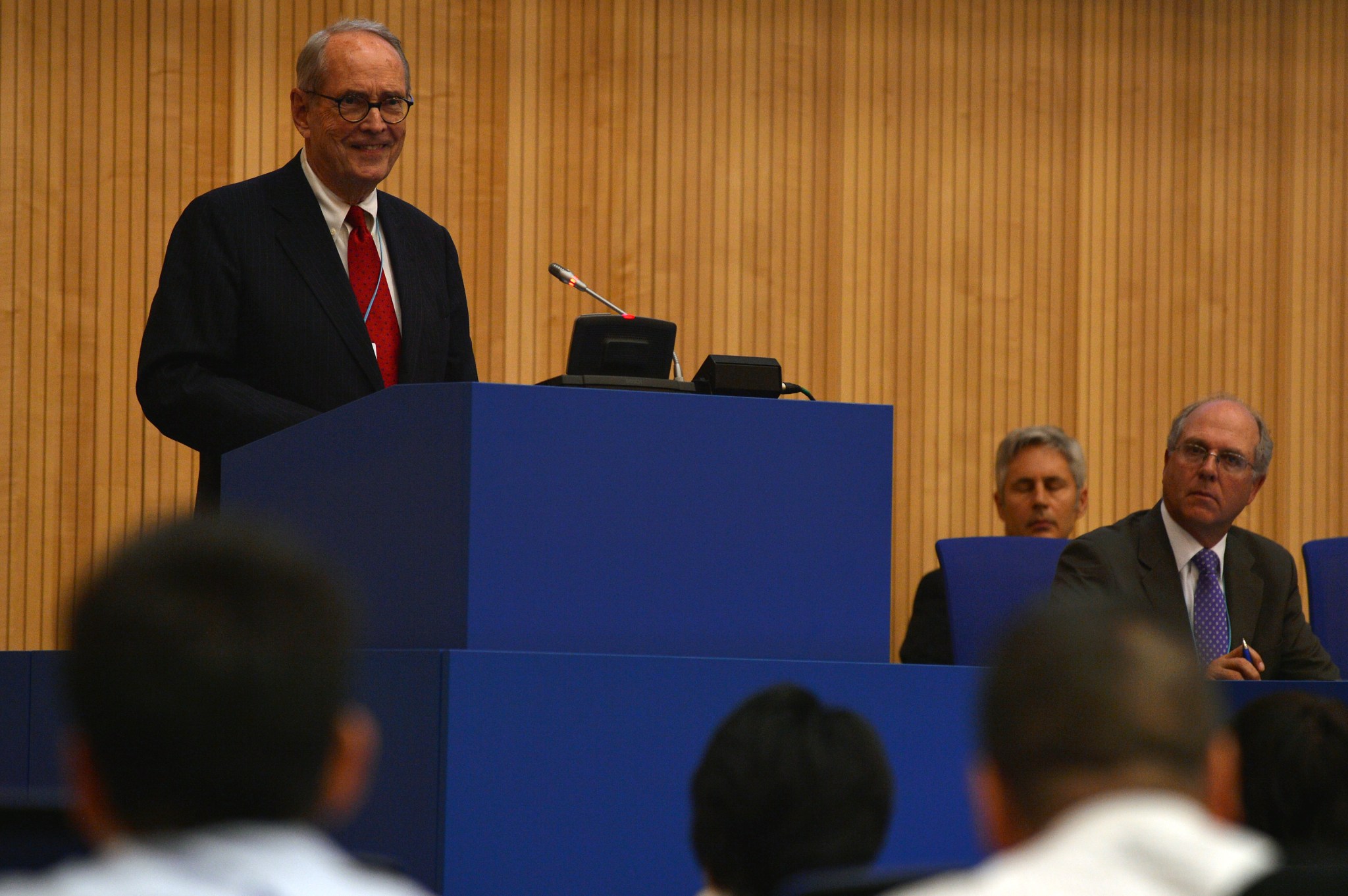
The International Republican Institute (IRI) is deeply saddened by the passing of former Pennsylvania Governor Richard Thornburgh, who led multiple election observation missions on behalf of the Institute in its early days. In honor of his legacy, IRI Regional Director for Transatlantic Strategy Jan Surotchak and Senior Eurasia Advisor Chris Holzen reflect on the critical role Thornburgh played in both protecting American democracy and advancing it abroad.
Everyone’s political framing narrative is different. But for young conservatives growing up in the late 1970s, the main author of the Republican narrative was Ronald Reagan, who won the presidency in 1980 with a promise to sweep away the ‘malaise’ of the outgoing administration at home and restore American leadership abroad.
Reagan, though, had a lot of help in his authorship of that narrative, and one of the best of his compatriots was former Pennsylvania Governor Richard (“Dick”) Thornburgh, who passed away last week at the age of 88. Even in the Reagan era, Pennsylvania was a swing state, and Thornburgh’s first election predated Reagan’s by two years, as Thornburgh took office in 1979 with a commitment to cleaning up the state corruption associated with his predecessor.
Thornburgh famously went on to become the United States Attorney General under both Reagan and George H.W. Bush, but perhaps his most defining moment came during his time as Governor of Pennsylvania. Just after Thornburgh’s inauguration, the nuclear power plant in the Susquehanna River experienced the worst accident in the history of nuclear power in the United States. Both at the time, and even more in retrospect with the memory of the Soviet mishandling of the 1986 Chernobyl disaster in mind, Thornburgh delivered a remarkably calm, measured, open, transparent and, yes, statesman-like response to the crisis.
Similar to today, Thornburgh’s Pennsylvania also struggled to manage the impact of a modernizing economy and address the needs of those who had been left behind. When the former governor took office, the unemployment rate in the state was among the ten highest in the United States. But through a series of economic development initiatives and welfare program reforms, Thornburgh’s years saw the creation of 50,000 new businesses and 500,000 new private sector jobs. When he left office, the Commonwealth’s unemployment rate was among the ten lowest in the country.
After his service as Attorney General, Thornburgh was called upon by President George H.W. Bush to serve a one-year appointment as Under Secretary General of the United Nations (UN). Not unlike today, Americans were deeply skeptical of the UN’s effectiveness in the 1990s, and many wondered why the multilateral organization was needed at all. In response, Thornburgh released a landmark report in 1993 that laid out a series of reform recommendations designed to make the operations of the UN more efficient and cost-effective, and – not unimportantly – maintain political support for the UN in the U.S.
Thornburgh understood that the success of democracy inside the U.S. was inevitably tied to the success of democracy beyond its borders. Visiting more than 40 countries throughout his career, Thornburg often participated in activities during those trips which sought to not only strengthen ties with the United States but also support their democratic development.
Twice, Thornburgh led IRI election observation delegations – once for the 1996 presidential election in the Russian Federation and again during the 1999 presidential election run-off in Ukraine. In both elections, incumbent presidents were vying for re-election against credible comeback efforts of the Communist parties that, while weakened, still maintained enough support to potentially discredit the recent reforms and independence of those countries from their Soviet pasts.
Thornburgh understood the gravity of the moment and the critical support America could offer the democratic forces in Russia and Ukraine as they struggled to build their democracies. He lent his impeccable reputation to our observation missions in countries where IRI was only beginning to establish its own footprint. And he knew first-hand of what he spoke– Thornburgh could not just quote from Ronald Reagan’s Westminster speech which established IRI, but could also share with others his personal conversations with the former president about that speech and their shared vision of global democracy. He tied together the vision with its implementation like few others could.
In so many ways, Thornburgh’s political life shows us that there is a remarkable degree of continuity in the challenges we face in protecting and defending the success of the American experiment. He also demonstrated that it’s possible – even politically profitable – to face these challenges with skill, balance, thoughtfulness and grace.
Top